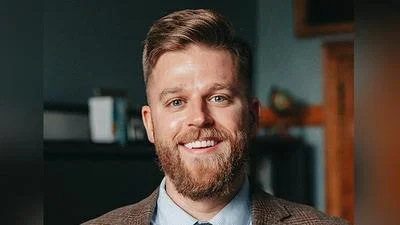Mayor Brandon Johnson | Mayor Brandon Johnson (https://www.chicago.gov/city/en.html)
Mayor Brandon Johnson | Mayor Brandon Johnson (https://www.chicago.gov/city/en.html)
A new phase of The People’s Plan for Community Safety.
CHICAGO – On March 13, 2024, Mayor Brandon Johnson alongside Deputy Mayor of Community Safety Garien Gatewood and the Mayor’s Office of Community Safety, announced the next major phase of The People’s Plan for Community Safety. This community-led initiative – The People’s Plan for Community Safety – brings together a diverse coalition of stakeholders, including government, community organizations, philanthropy, youth leaders, faith organizations, researchers, and businesses to address historic disinvestment as co-creators of safety.
Focusing on ten specific block groups within four hyperlocal areas in Englewood, West Garfield Park, Austin, and Little Village (South Lawndale), this phase aims to amplify the impact of our investments directed at eradicating the root causes of violence in historically disinvested communities. In conjunction with this announcement, an RFP of $1 million will be issued in April 2024 to support community groups in the four neighborhoods. The four target communities are as follows:
- Englewood – 59th to 63rd by Racine to Morgan, Garfield Blvd to 59th by Racine and Morgan
- West Garfield Park – Madison to Lexington by Kenton / Kolmar, Adams to Eisenhower by Kostner to Keeler, Adams to Eisenhower by Keeler to Pulaski, Jackson to Harrison by Pulaski to Hamlin
- Austin – Madison to Adams by Laramie and Lavergne & West End to Madison by Laramie to Lavergne
- Little Village (South Lawndale) – 26th to 27th by Kildare to Pulaski, 27th to 28th by Kildare to Pulaski
"I am confident in the People's Plan for Community Safety because it drives the entire city's efforts toward the people and places who need our investments the most," said Mayor Brandon Johnson. "The areas that we will focus on in Englewood, West Garfield Park, Austin, and Little Village (South Lawndale) are not only in great need of revitalization, but they are home to incredible assets that we will promote and build upon in our work. I look forward to collaborating with stakeholders and partners across our great city to serve these neighborhoods and build a stronger, safer Chicago."
The communities and ten block groups were selected using the U.S. Census as a baseline to maintain consistent geographic areas, and then through extensive quantitative and qualitative data analysis of the most violent CPD beats layered on indicators of historical disinvestment (e.g. school closures, presence of parks and libraries, vacant lots) and social determinants of health - we were able to highlight the most vulnerable neighborhoods that require immediate support and resources.
“These communities have historically been ignored, even when in crisis, and that has proven to be unsustainable,” said Deputy Mayor of Community Safety Garien Gatewood. “By strategically targeting investments and fostering community engagement, we aim to create a lasting change that promotes safety and opportunity for all residents while laying the groundwork for long-term prosperity.”
A two-pronged strategy will be implemented in these neighborhoods to address the historic disinvestment by layering investments focused on reanimating and nourishing the foundation of community across these block groups.
- People-Based: The plan focuses efforts on Chicagoans who are most impacted by historic disinvestment and violence. This includes outreach and intervention with youth and adults of highest promise – members of our community who have been impacted by the repeated cycle of harm due to purposeful disinvestment– as well as support for victims and survivors of violence.
- Place-Based: To ensure a safer Chicago for generations to come, the plan focuses on addressing the root causes of violence through long-term, layered investments in key areas: education, economic opportunity, housing, health, community environment, community violence intervention and policing.
“Our communities have been neglected for far too long and we are heartened to have new investment focused on providing more opportunities and making our neighborhoods safer,” said Alderman Jason Ervin.
A hyperlocal approach will enable the City to provide a suite of services, programs, and intentional support for community members. Residents will be able to see marked impact as City leaders, community groups, city agencies, and key stakeholders begin work on the community environment in these neighborhoods to create safer, walkable neighborhoods to further drive community engagement.
“I am excited to see the community and city come together in careful coordination to bring support and resources to these neighborhoods,” said Community Engagement Manager for the CSCC Greg Matthews. “This collaborative effort underscores our commitment to uplifting every corner of our city.”
For more information about The People’s Plan for Community Safety, please visit chicago.gov/communitysafety.
Original source can be found here.




 Alerts Sign-up
Alerts Sign-up